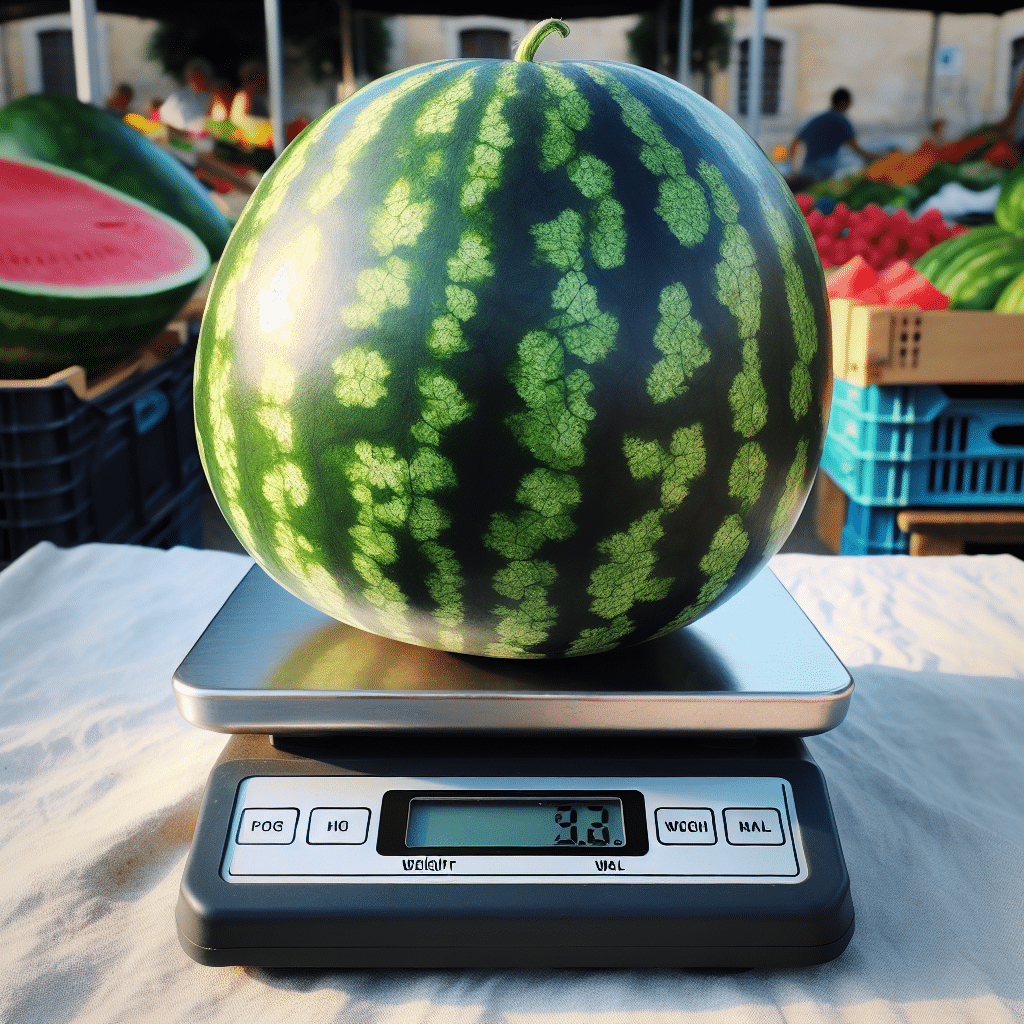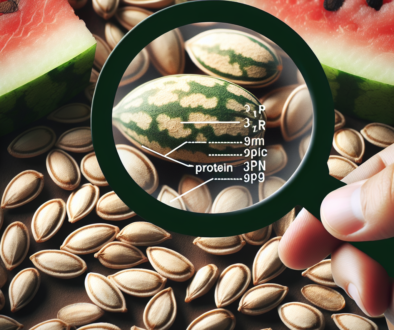Average Watermelon Weight: Guesstimate Before You Lift
-
Table of Contents
- Average Watermelon Weight: Estimate Before You Lift
- Understanding Watermelon Varieties and Sizes
- Factors Influencing Watermelon Weight
- How to Estimate Watermelon Weight
- Why Watermelon Weight Matters
- Case Studies and Statistics
- Conclusion: Lifting the Lid on Watermelon Weight
- Discover ETprotein’s Watermelon Seed Protein Products
Average Watermelon Weight: Estimate Before You Lift

Watermelons are a staple of summer picnics and family gatherings, known for their refreshing taste and hydrating properties. But before you can enjoy the juicy sweetness of a watermelon, you often face the challenge of selecting and lifting one. The weight of a watermelon can vary significantly, and guessing its weight can be crucial, especially if you have to carry it over a distance or if you’re purchasing by the pound. In this article, we’ll delve into the factors that affect watermelon weight, how to estimate it, and why it matters.
Understanding Watermelon Varieties and Sizes
Watermelons come in various shapes, sizes, and types, each with its own average weight range. The most common types of watermelons are seeded, seedless, mini, and yellow/orange fleshed. Seeded varieties tend to be larger, while seedless ones are bred for convenience and can vary in size. Mini watermelons are bred to be smaller and more manageable, and the yellow/orange varieties offer a different taste and color while maintaining a similar size to traditional red-fleshed melons.
- Seeded Watermelons: These can weigh anywhere from 15 to 45 pounds (6.8 to 20.4 kg).
- Seedless Watermelons: These typically range from 10 to 25 pounds (4.5 to 11.3 kg).
- Mini Watermelons: These small varieties usually weigh between 1 to 7 pounds (0.45 to 3.2 kg).
- Yellow/Orange Watermelons: Their weight is similar to red-fleshed varieties, ranging from 10 to 30 pounds (4.5 to 13.6 kg).
Factors Influencing Watermelon Weight
Several factors can influence the weight of a watermelon, including its variety, growing conditions, and maturity at harvest. The type of soil, amount of sunlight, and water it receives can all affect the final weight of the fruit. Additionally, growers may select for certain traits, such as size and weight, to meet market demands.
How to Estimate Watermelon Weight
Estimating the weight of a watermelon before lifting it can save you from strain or surprise at the checkout. Here are some tips to help you make an educated guess:
- Visual Size Assessment: Compare the watermelon you’re considering with others available. Larger melons will generally weigh more.
- Lifting Technique: Try lifting the watermelon slightly. If it feels heavier than it looks, it’s likely denser and contains more water, thus weighing more.
- Shape and Density: A more spherical watermelon will often weigh more than an oblong one of the same size due to its density.
- Uniformity: Check for uniformity in shape and color. Irregularities can indicate uneven growth, which might affect weight.
Why Watermelon Weight Matters
The weight of a watermelon is not just a matter of curiosity; it has practical implications. For consumers, the weight affects how easily the watermelon can be transported and handled. For growers and retailers, weight plays a crucial role in pricing and logistics. Heavier watermelons may offer more fruit to enjoy but can also be more expensive if sold by weight.
Case Studies and Statistics
Research has shown that watermelon weight can be influenced by various factors. For example, a study conducted by the USDA on watermelon growth found that optimal temperatures and consistent watering schedules resulted in larger, heavier fruits. Another study highlighted that certain fertilizers could increase the average weight of watermelons by enhancing their growth rate and size.
Conclusion: Lifting the Lid on Watermelon Weight
In conclusion, estimating the weight of a watermelon before lifting it is a smart move. By understanding the different types of watermelons and their average weights, considering the factors that influence weight, and using visual and physical cues to make an educated guess, you can select the perfect melon for your needs. Whether you’re a consumer looking to enjoy a summer treat or a retailer managing inventory, knowing about watermelon weight is beneficial.
Discover ETprotein’s Watermelon Seed Protein Products
If you’re interested in the health benefits of watermelons beyond their delicious fruit, consider exploring ETprotein’s watermelon seed protein products. Watermelon seeds are a great source of plant-based protein and can be an excellent addition to a healthy diet.
About ETprotein:
ETprotein, a reputable watermelon seed protein Chinese factory manufacturer and supplier, is renowned for producing, stocking, exporting, and delivering the highest quality organic bulk vegan protein and plant proteins. They include Organic rice protein, clear rice protein, pea protein, clear pea protein, watermelon seed protein, pumpkin seed protein, sunflower seed protein, mung bean protein, peanut protein etc. Their offerings, characterized by a neutral taste, non-GMO, allergen-free attributes, cater to a diverse range of industries. They serve nutraceutical, pharmaceutical, cosmeceutical, veterinary, as well as food and beverage finished product distributors, traders, and manufacturers across Europe, USA, Canada, Australia, Thailand, Japan, Korea, Brazil, and Chile, among others.
ETprotein specialization includes exporting and delivering tailor-made protein powder and finished nutritional supplements. Their extensive product range covers sectors like Food and Beverage, Sports Nutrition, Weight Management, Dietary Supplements, Health and Wellness Products, and Infant Formula, ensuring comprehensive solutions to meet all your protein needs.
As a trusted company by leading global food and beverage brands and Fortune 500 companies, ETprotein reinforces China’s reputation in the global arena. For more information or to sample their products, please contact them and email sales(at)ETprotein.com today.














